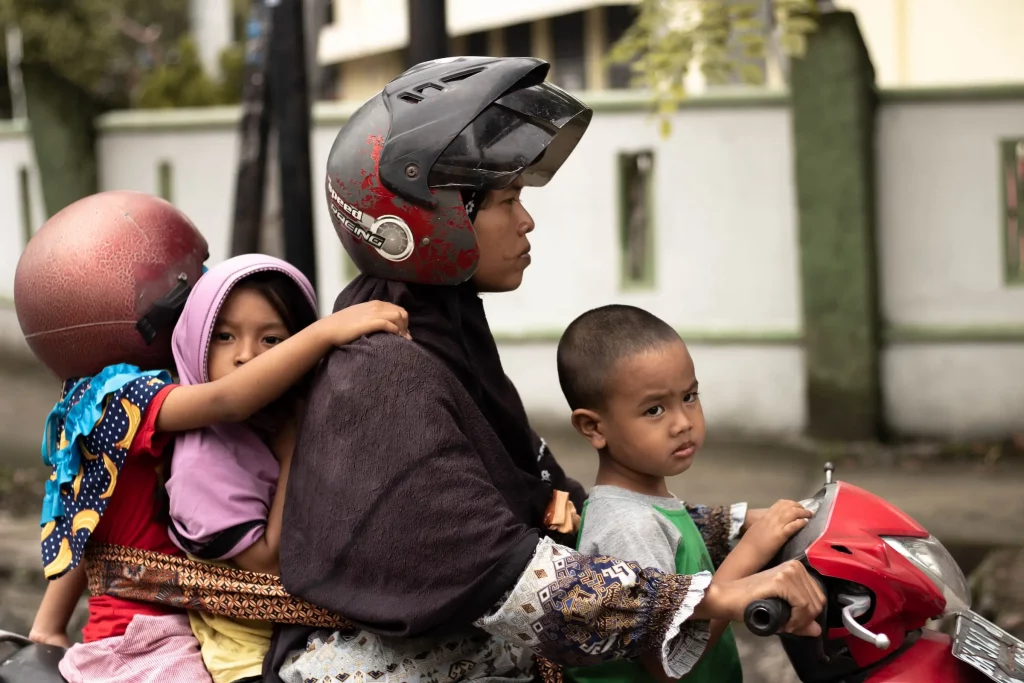Supporting Working Mothers with Childcare Services in Indonesia

Photo: Yannis H on Unsplash.
Being a mother who works is a challenge. It is not unusual for women to leave work after getting married and having children. A study by the World Bank discovered the importance of access to childcare services for working mothers. Unfortunately, finding quality and affordable childcare services in Indonesia remains challenging due to the lack of proper procedures, security measures, and standards.
Supporting working mothers
The lack of quality and affordable childcare services is one of the obstacles for women who want to work. The Central Bureau of Statistics recorded that women comprised 35.5% of Indonesia’s workforce in 2021, significantly lower than men’s 43.95%.
The study found that increasing access to quality daycare can increase the chances for women to participate in the labor market. Mothers who work can improve family welfare, including liberating from poverty and providing better support for their children’s education and health. Studies found that investing in childhood care during the first 1,000 days of life is crucial to building the foundations of their health, growth, and neurodevelopment.
At the same time, providing more jobs and higher income for women can boost the country’s economic growth. In this case, the government’s intervention is crucial. One of the ways is to increase the public expenditure for early childhood development and childcare services.
Improving childcare services in Indonesia
As of 2022, the study reveals that the government of Indonesia allocates 0.04% of its GDP to early childhood development and childcare services. This is far below the OECD’s standard of 1% of GDP. Increasing the public expenditure on early childhood development and childcare services can improve female workers’ welfare and the country’s income.
Through model simulations, the study estimates that increasing government expenditure for childcare by 0.1% will improve women’s participation in the labor market to 53.5% and add GDP growth by 0.4% in 2030. Meanwhile, increasing the expenditure by 0.5% will increase women’s participation in the labor market to 58.3% and add GDP growth by 0.69%.
The study provides several recommendations for Indonesia’s government:
- Develop a comprehensive vision and roadmap that outlines national policies, targets, and objectives and clarifies the roles and responsibilities of participating ministries behind the goals of supporting childcare.
- Design fiscal stimulus for childcare services to expand services, especially targeting low-income and disadvantaged children.
- Adapt childcare services according to children’s needs and ages.
- Invest in the entire care economy.
- Engage with evolving social norms through information campaigns and outreach services.
Kurniawati Hastuti Dewi, a National Research and Innovation Agency researcher, wrote, “It’s time for the government to take control and responsibilities for childcare services in Indonesia to equip them with the same quality and standards, both from the daycare management to the recruitment of potential babysitters.”
Quality and affordable childcare services are essential to supporting working mothers. Therefore, it should reach all working mothers at every level of society. This way, genuine improvements can be made with the spirit of leaving no one behind.
Translator: Kresentia Madina
Read the original article in Indonesian at Green Network Indonesia.

Co-create positive impact for people and the planet.
Amidst today’s increasingly complex global challenges, equipping yourself, team, and communities with interdisciplinary and cross-sectoral insights on sustainability-related issues and sustainable development is no longer optional — it is a strategic necessity to stay ahead and stay relevant.
Maulina Ulfa
Ulfa is a Reporter at Green Network Asia. She graduated from Jember University with a bachelor's degree in International Relations.


 Reframing Governance in the Era of Water Bankruptcy
Reframing Governance in the Era of Water Bankruptcy  Strengthening Resilience amid Growing Dependence on Space Infrastructure
Strengthening Resilience amid Growing Dependence on Space Infrastructure  Indian Gig Workers Push Back Against 10-Minute Delivery Service Strain
Indian Gig Workers Push Back Against 10-Minute Delivery Service Strain  Call for Governance: Grassroots Initiatives Look to Scale Efforts to Conserve Depleting Groundwater
Call for Governance: Grassroots Initiatives Look to Scale Efforts to Conserve Depleting Groundwater  Integrating Environment, Climate Change, and Sustainability Issues into Education Systems
Integrating Environment, Climate Change, and Sustainability Issues into Education Systems  Finally Enforced: Understanding the UN High Seas Treaty
Finally Enforced: Understanding the UN High Seas Treaty